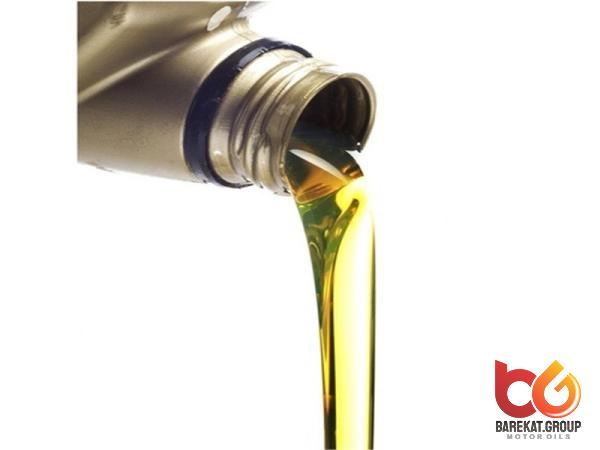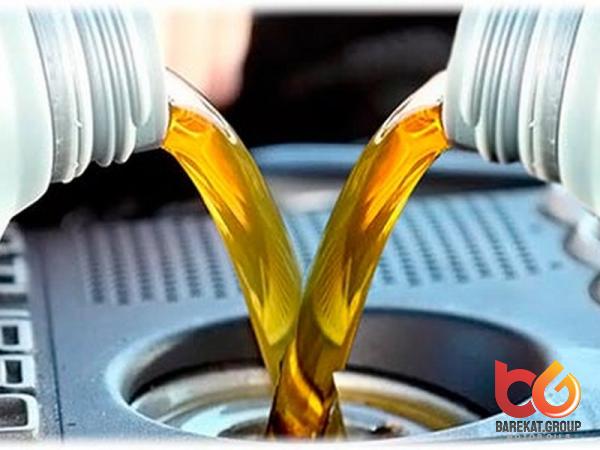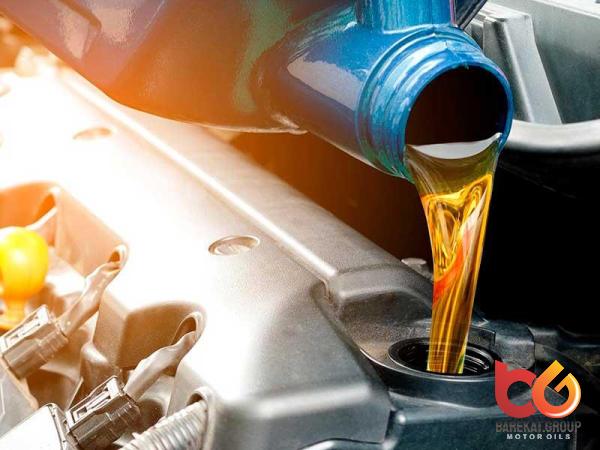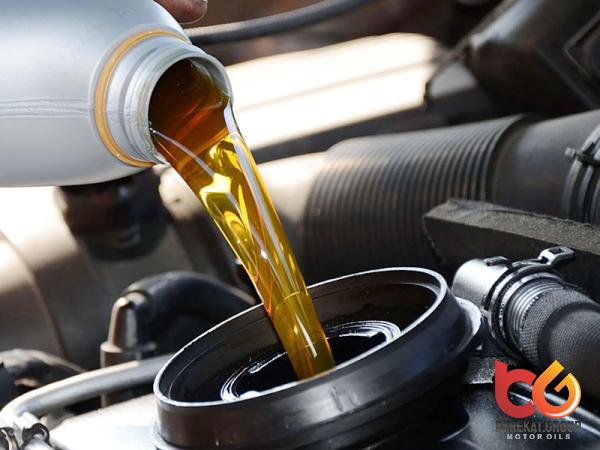An Overview of High Viscosity Engine Oil Grades: Benefits and Applications Introduction: Engine oil is an essential element in maintaining the performance and longevity of internal combustion engines. Its main function is to lubricate engine components, reducing friction and wear. Different types of engine oils exist to cater to the varying needs of different vehicles and operating conditions. High viscosity engine oil grades, in particular, play a significant role in specific applications where extreme conditions or heavy-duty operations call for increased lubrication properties. Definition and Function: Viscosity refers to the measure of a fluid’s resistance to flow. In the context of engine oil, viscosity grade represents its ability to flow and provide lubrication at different temperatures. A high viscosity oil grade has thicker consistency, offering higher levels of protection and lubrication in demanding conditions. Benefits and Applications: 1. Increased Film Strength: High viscosity engine oil grades possess a higher film strength, allowing them to maintain a protective barrier between engine components for an extended period. This characteristic is particularly crucial in applications with heavy loads or high operating temperatures that may cause thin oil films to break down faster. 2. Enhanced Wear and Friction Reduction: The thicker consistency of high viscosity oils helps reduce wear and friction between moving parts, providing better protection against engine component damages. This benefit is particularly valuable in older engines or those operating in extreme environments where high temperatures or heavy usage intensify wear and tear. 3. Improved Thermal Stability: High viscosity oils exhibit better thermal stability, ensuring minimal viscosity changes at high temperatures.
Engine oil
 This stability allows the oil to maintain proper lubrication even in extreme heat conditions, preventing viscosity breakdown and maintaining engine efficiency. 4. Better Oxidation Resistance: Oxidation is a chemical reaction that occurs when the lubricant is exposed to oxygen, resulting in the formation of sludge, varnish, and deposits. High viscosity oils contain additives that improve oxidation resistance, ensuring cleaner internal engine components and prolonging engine life. 5. Effective Sealant Properties: High viscosity oil can fill gaps and maintain a tight seal between engine components, reducing the risk of fluid leakage or loss. This property is particularly beneficial in older engines or machinery with worn seals and gaskets, prolonging their usage and preventing potential damage from oil leaks. 6. Heavy-Duty Applications: High viscosity engine oil grades are commonly used in heavy-duty applications, such as commercial trucks, construction equipment, and agriculture machinery. These applications typically involve higher loads and operating temperatures, which require oils with greater lubrication and protection capabilities. 7. Older Engines: High viscosity oil grades are ideal for older engines that have experienced wear and degradation over time. The thicker consistency compensates for the increased clearance between engine parts due to aging, providing better lubrication and reducing the risk of component damage. Considerations and Limitations: While high viscosity engine oil grades offer numerous benefits in specific applications, it is essential to consider their limitations and suitability for different engines. Some key considerations include: 1. Cold Start Concerns: High viscosity oils can impede easy engine start-up, especially in colder climates, as they take longer to circulate and reach critical engine components. This limitation can be mitigated by using multi-grade oils, which have lower viscosity at colder temperatures and higher viscosity at higher temperatures.
This stability allows the oil to maintain proper lubrication even in extreme heat conditions, preventing viscosity breakdown and maintaining engine efficiency. 4. Better Oxidation Resistance: Oxidation is a chemical reaction that occurs when the lubricant is exposed to oxygen, resulting in the formation of sludge, varnish, and deposits. High viscosity oils contain additives that improve oxidation resistance, ensuring cleaner internal engine components and prolonging engine life. 5. Effective Sealant Properties: High viscosity oil can fill gaps and maintain a tight seal between engine components, reducing the risk of fluid leakage or loss. This property is particularly beneficial in older engines or machinery with worn seals and gaskets, prolonging their usage and preventing potential damage from oil leaks. 6. Heavy-Duty Applications: High viscosity engine oil grades are commonly used in heavy-duty applications, such as commercial trucks, construction equipment, and agriculture machinery. These applications typically involve higher loads and operating temperatures, which require oils with greater lubrication and protection capabilities. 7. Older Engines: High viscosity oil grades are ideal for older engines that have experienced wear and degradation over time. The thicker consistency compensates for the increased clearance between engine parts due to aging, providing better lubrication and reducing the risk of component damage. Considerations and Limitations: While high viscosity engine oil grades offer numerous benefits in specific applications, it is essential to consider their limitations and suitability for different engines. Some key considerations include: 1. Cold Start Concerns: High viscosity oils can impede easy engine start-up, especially in colder climates, as they take longer to circulate and reach critical engine components. This limitation can be mitigated by using multi-grade oils, which have lower viscosity at colder temperatures and higher viscosity at higher temperatures.
Specifications of Engine oil
 2. Fuel Efficiency: High viscosity oils generally have higher resistance to flow, which can result in increased fuel consumption. Engine manufacturers often recommend specific viscosity grades to maintain optimal fuel efficiency. 3. Engine Specifications: It is crucial to consult the engine manufacturer’s recommendations or vehicle owner’s manuals to identify the appropriate viscosity grade for a particular engine. The manufacturer’s specifications account for various factors and ensure the best performance and protection for each engine type. Conclusion: High viscosity engine oil grades offer valuable advantages in specific applications where extreme conditions or heavy-duty operations necessitate enhanced lubrication. These oils exhibit increased film strength, wear and friction reduction, improved thermal stability, oxidation resistance, effective sealant properties, and are ideal for heavy-duty machinery and older engines. However, considering factors such as cold start concerns, fuel efficiency, and adherence to engine manufacturer specifications is essential to optimize performance and protect engines effectively.Title: An Overview of High Viscosity Engine Oil Grades: Benefits and Applications Introduction: In today’s ever-evolving automotive industry, engine oil plays a vital role in ensuring optimal performance and longevity of internal combustion engines. Among the various types of engine oils available, high viscosity oil grades are specifically designed to meet the demands of heavy-duty applications and extreme operating conditions. This article will explore the benefits and applications of high viscosity engine oil grades, shedding light on their importance in critical industrial sectors. 1. Heavy-Duty Machinery and Equipment: High viscosity engine oil grades find significant application in heavy-duty machinery and equipment, including commercial trucks, construction vehicles, and agricultural machinery. These industries often involve prolonged operation under high loads, elevated temperatures, and harsh environments.
2. Fuel Efficiency: High viscosity oils generally have higher resistance to flow, which can result in increased fuel consumption. Engine manufacturers often recommend specific viscosity grades to maintain optimal fuel efficiency. 3. Engine Specifications: It is crucial to consult the engine manufacturer’s recommendations or vehicle owner’s manuals to identify the appropriate viscosity grade for a particular engine. The manufacturer’s specifications account for various factors and ensure the best performance and protection for each engine type. Conclusion: High viscosity engine oil grades offer valuable advantages in specific applications where extreme conditions or heavy-duty operations necessitate enhanced lubrication. These oils exhibit increased film strength, wear and friction reduction, improved thermal stability, oxidation resistance, effective sealant properties, and are ideal for heavy-duty machinery and older engines. However, considering factors such as cold start concerns, fuel efficiency, and adherence to engine manufacturer specifications is essential to optimize performance and protect engines effectively.Title: An Overview of High Viscosity Engine Oil Grades: Benefits and Applications Introduction: In today’s ever-evolving automotive industry, engine oil plays a vital role in ensuring optimal performance and longevity of internal combustion engines. Among the various types of engine oils available, high viscosity oil grades are specifically designed to meet the demands of heavy-duty applications and extreme operating conditions. This article will explore the benefits and applications of high viscosity engine oil grades, shedding light on their importance in critical industrial sectors. 1. Heavy-Duty Machinery and Equipment: High viscosity engine oil grades find significant application in heavy-duty machinery and equipment, including commercial trucks, construction vehicles, and agricultural machinery. These industries often involve prolonged operation under high loads, elevated temperatures, and harsh environments.
Buy Engine oil
 The robust lubrication properties of high viscosity oils provide superior protection to engine components, reducing wear, and extending their operational life. 2. Mining and Off-Road Vehicles: In the mining and off-road sectors, machines operate under demanding conditions, including rough terrains, extreme temperatures, and heavy loads. High viscosity engine oil grades play a crucial role in minimizing metal-to-metal contact and reducing friction-related wear and tear. Mining companies and off-road vehicle manufacturers often rely on these oils to ensure optimal performance and to protect critical engine parts from premature failure. 3. Marine and Shipping: The marine industry relies heavily on high viscosity engine oil grades to meet the unique requirements of marine engines. These engines often operate continuously for extended periods under extreme conditions such as high temperatures, heavy loads, and harsh saltwater environments. High viscosity oils provide the necessary lubrication and protection to safeguard marine engines against excessive wear, corrosion, and damage caused by water intrusion. 4. Power Generation: In power generation facilities, such as power plants and generators, high viscosity engine oil grades are utilized to ensure reliable and efficient operation. The constant running of generators, particularly in standby or emergency situations, demands oils with exceptional thermal stability and oxidation resistance. High viscosity oils are capable of withstanding long periods of continuous operation and maintaining optimal lubrication even under high temperatures and mechanical stress. 5. Industrial Machinery: High viscosity engine oil grades are widely employed in various industrial machinery applications that involve heavy loads, severe vibrations, and high-temperature environments. Industrial equipment such as pumps, compressors, and hydraulic systems rely on the superior lubricating properties of high viscosity oils to minimize wear, prevent component failure, and ensure smoother and more efficient operation. 6. Older Engine Maintenance: High viscosity engine oil grades prove particularly beneficial for older engines that exhibit increased wear and larger tolerances between moving parts.
The robust lubrication properties of high viscosity oils provide superior protection to engine components, reducing wear, and extending their operational life. 2. Mining and Off-Road Vehicles: In the mining and off-road sectors, machines operate under demanding conditions, including rough terrains, extreme temperatures, and heavy loads. High viscosity engine oil grades play a crucial role in minimizing metal-to-metal contact and reducing friction-related wear and tear. Mining companies and off-road vehicle manufacturers often rely on these oils to ensure optimal performance and to protect critical engine parts from premature failure. 3. Marine and Shipping: The marine industry relies heavily on high viscosity engine oil grades to meet the unique requirements of marine engines. These engines often operate continuously for extended periods under extreme conditions such as high temperatures, heavy loads, and harsh saltwater environments. High viscosity oils provide the necessary lubrication and protection to safeguard marine engines against excessive wear, corrosion, and damage caused by water intrusion. 4. Power Generation: In power generation facilities, such as power plants and generators, high viscosity engine oil grades are utilized to ensure reliable and efficient operation. The constant running of generators, particularly in standby or emergency situations, demands oils with exceptional thermal stability and oxidation resistance. High viscosity oils are capable of withstanding long periods of continuous operation and maintaining optimal lubrication even under high temperatures and mechanical stress. 5. Industrial Machinery: High viscosity engine oil grades are widely employed in various industrial machinery applications that involve heavy loads, severe vibrations, and high-temperature environments. Industrial equipment such as pumps, compressors, and hydraulic systems rely on the superior lubricating properties of high viscosity oils to minimize wear, prevent component failure, and ensure smoother and more efficient operation. 6. Older Engine Maintenance: High viscosity engine oil grades prove particularly beneficial for older engines that exhibit increased wear and larger tolerances between moving parts.
Engine oil + buy and sell
 These engines often experience decreased efficiency and increased oil consumption. High viscosity oils compensate for these issues by providing better lubrication and sealing properties, reducing oil leaks, and extending the engine’s usable life. 7. Extreme Temperature Operations: Certain applications, such as cold-weather operations or extreme heat conditions, require an engine oil capable of providing optimal lubrication across a wider temperature range. High viscosity oil grades, including multigrade oils, offer a balance between low-temperature fluidity and high-temperature viscosity, ensuring proper lubrication and protection in diverse climatic conditions. 8. Improved Fuel Efficiency with Proper Viscosity: The choice of appropriate viscosity grade is crucial for maintaining fuel efficiency in modern engines. Too high a viscosity can lead to increased fuel consumption due to added friction and drag. However, using the correct high viscosity oil grade, as recommended by the engine manufacturer, can contribute to optimal fuel efficiency by reducing friction, improving engine performance, and ensuring the effective separation of moving parts. 9. Engine Manufacturer Specifications: When selecting high viscosity engine oil grades, it is essential to refer to the engine manufacturer’s guidelines and specifications. Every engine type and model has specific lubrication requirements that account for factors such as operating conditions, materials, and tolerances. Adhering to these recommendations ensures the best performance and protection for the engine while preventing any potential warranty issues. 10. Importance of Regular Oil Analysis: Regular oil analysis is crucial when utilizing high viscosity oil grades. By regularly monitoring oil condition and properties, potential issues such as contamination, wear, and degradation can be detected early. This allows for timely oil changes or adjustments to ensure optimal engine performance and longevity. Conclusion: High viscosity engine oil grades play a significant role in various industries, supporting heavy-duty applications, extreme operating conditions, and the maintenance of older engines. These oils provide improved film strength, wear reduction, thermal stability, oxidation resistance, and effective sealing properties. By understanding the requirements of specific applications, adhering to engine manufacturer specifications, and conducting regular oil analysis, businesses can harness the full benefits of high viscosity engine oil grades, ensuring reliable engine performance and prolonged service life.
These engines often experience decreased efficiency and increased oil consumption. High viscosity oils compensate for these issues by providing better lubrication and sealing properties, reducing oil leaks, and extending the engine’s usable life. 7. Extreme Temperature Operations: Certain applications, such as cold-weather operations or extreme heat conditions, require an engine oil capable of providing optimal lubrication across a wider temperature range. High viscosity oil grades, including multigrade oils, offer a balance between low-temperature fluidity and high-temperature viscosity, ensuring proper lubrication and protection in diverse climatic conditions. 8. Improved Fuel Efficiency with Proper Viscosity: The choice of appropriate viscosity grade is crucial for maintaining fuel efficiency in modern engines. Too high a viscosity can lead to increased fuel consumption due to added friction and drag. However, using the correct high viscosity oil grade, as recommended by the engine manufacturer, can contribute to optimal fuel efficiency by reducing friction, improving engine performance, and ensuring the effective separation of moving parts. 9. Engine Manufacturer Specifications: When selecting high viscosity engine oil grades, it is essential to refer to the engine manufacturer’s guidelines and specifications. Every engine type and model has specific lubrication requirements that account for factors such as operating conditions, materials, and tolerances. Adhering to these recommendations ensures the best performance and protection for the engine while preventing any potential warranty issues. 10. Importance of Regular Oil Analysis: Regular oil analysis is crucial when utilizing high viscosity oil grades. By regularly monitoring oil condition and properties, potential issues such as contamination, wear, and degradation can be detected early. This allows for timely oil changes or adjustments to ensure optimal engine performance and longevity. Conclusion: High viscosity engine oil grades play a significant role in various industries, supporting heavy-duty applications, extreme operating conditions, and the maintenance of older engines. These oils provide improved film strength, wear reduction, thermal stability, oxidation resistance, and effective sealing properties. By understanding the requirements of specific applications, adhering to engine manufacturer specifications, and conducting regular oil analysis, businesses can harness the full benefits of high viscosity engine oil grades, ensuring reliable engine performance and prolonged service life.
Your comment submitted.